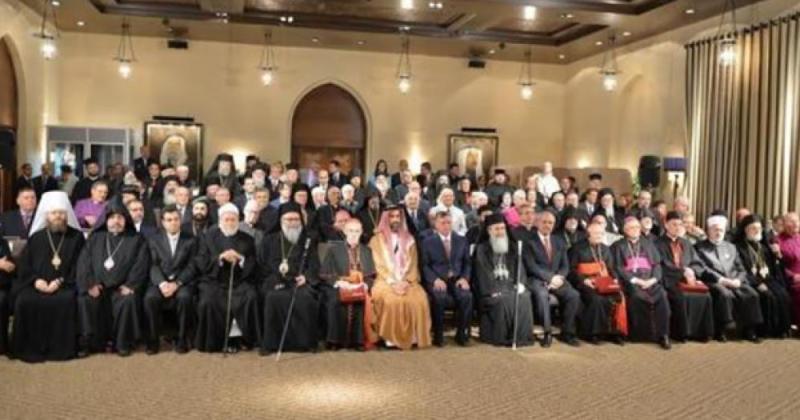On September 3, 2013, dozens of invitees from all parts of the world gathered in beloved Amman at the invitation of His Majesty King Abdullah II Ibn Al-Hussein to participate in a conference that bore a title and drew the attention of various media outlets, namely “The Challenges Facing Middle East Christians”. In the aftermath of the opening address by His Royal Highness Prince Ghazi Ibn Mohammad at Le Royale Hotel, His Majesty the King welcomed the participants in the conference at Al Husseiniya Palace and delivered an important address that included “protecting the rights of Middle East Christians is a duty rather than a favor.”
Among the most prominent Christian attendees, in addition to all the patriarchs of the various Churches of the East, was Cardinal Jean-Louis Tauran (passed away in 2018) who is considered one of the most prominent men of religious dialogue. He said in his address, “Christian Arabs ought to have the courage to remain in their land, to persevere in interfaith dialogue, and to show in the harmony of their lives that God is love and peace. The believers who view their religious convictions are respected and defended when needed, will willingly cooperate in building a harmonious civil society.”
We look back ten years, and discern that the conference was held as a warning of what would happen a year later, namely the forcible displacement of Christians from Mosul and the rest of the townships in the Nineveh Plain, by the terrorist ISIS gang, which tore up the fabric of Iraq as well as persecuted ethnic and religious minorities. Indeed, the conference served as a warning message portending a great danger in the offing that prompted the Hashemite King to ward it off and to defend a major component of the East, namely the Christians.
The views expressed by King Abdullah II serves as an echoing of late Pope Benedict XVI’s remark in his apostolic exhortation on the Christians of the East (signed in Lebanon 2012) that states, “A Middle East without Christians, or with only a few Christians, would no longer be the Middle East.” Indeed, almost two million Christians have emigrated from the East to the vast countries of the world. Owing to their current small numbers in our countries, two million people means a lot to us to their diminishing presence. This is what referred to nowadays as the continued hemorrhage of the Christian presence in the East.
Two weeks ago, I was at Our Lady of Lourdes Grotto in France, which is one of the greatest Christian pilgrimage sites as it is visited annually by nearly ten million people. In the midst of the crowd, “Ragheed”--who came from Australia--looked for me as he had spent two years at the Latin Patriarchate Church in Na’our after ISIS had forcibly displaced him and his family from Mosul. I was very happy regarding this unexpected meeting, and this Iraqi-Australian family repeatedly expressed good wishes and gratitude for the kindness they harbor to Jordan, its king, and people, to the town and the church of Na’our, to the Caritas Jordan, and to the Emirates Red Crescent Society. They are happy now, but there is pain in the heart and longing in the mind, as no receiving country in the world can calm the souls and return them to the pre-forcible displacement period.Yet, there is a generation of young people that starts a new life in a country that we call foreign, and the children call it their dear country, which granted their parents new nationalities that enable them to move among the countries of the world quietly and feely.
We are pained by the continued optional hemorrhage of emigration and forcible displacement, yet we fear for the noble plurality in our dear East. We are grateful to His majesty the King who pays attention to this matter, as he said in a CNN interview that “Emptying the region of the Christian presence would be disastrous for everyone, as Christians are part of the past and present of the East, and they must be part of its future as well.”
Thank you, Your Majesty, for after ten years you are still the only person in this persistent East that focuses on Christians and their glorious history.
